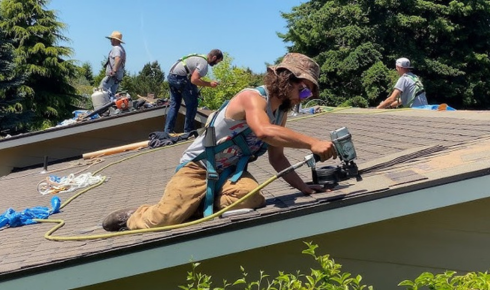Purchasing a home is a significant milestone in anyone’s life, marking both an emotional and financial commitment. While the excitement of buying a new home is palpable, navigating the home buying process requires careful consideration and planning. Avoiding common pitfalls can save you from costly mistakes and ensure a smoother transaction. Here’s a comprehensive guide on the common mistakes to avoid when buying a home:
1. Failing to Set a Budget
One of the most common mistakes homebuyers make is not setting a realistic budget. Without a clear budget, you risk overextending yourself financially. Before starting your home search, assess your financial situation, including your income, savings, and existing debts. Consider getting pre-approved for a mortgage to understand how much you can borrow. This will help you focus on homes within your price range and prevent you from falling in love with a property that is out of reach.
2. Ignoring Additional Costs
Many homebuyers overlook the additional costs associated with buying a home. Beyond the down payment, you need to account for closing costs, which can include appraisal fees, title insurance, and legal fees. Additionally, consider the ongoing costs of homeownership, such as property taxes, homeowners insurance, and maintenance expenses. Budgeting for these costs ensures that you are financially prepared for the full scope of homeownership.
3. Not Getting a Home Inspection
Skipping a home inspection can lead to unexpected issues and costly repairs down the road. A home inspection provides a detailed assessment of the property’s condition, including the structural integrity, electrical systems, plumbing, and potential pest problems. This can uncover hidden issues that might not be apparent during a casual walkthrough. Investing in a thorough home inspection can give you peace of mind and help you make an informed decision.
4. Overlooking the Neighborhood
The location of a home is just as important as the property itself. Many buyers focus solely on the house’s features and fail to thoroughly research the neighborhood. Consider factors such as the quality of local schools, proximity to work, public transportation options, and overall safety. Visiting the neighborhood at different times of the day can also provide insight into traffic patterns and noise levels. Choosing the right neighborhood can significantly impact your quality of life and the home’s long-term value.
5. Not Considering Future Needs
When buying a home, it’s essential to think about your future needs. While a home might meet your current requirements, consider how your needs might change over time. For example, if you plan to start a family, ensure the home has enough space and bedrooms. If you anticipate career changes or relocations, consider the home’s resale potential. Thinking ahead can help you choose a property that remains suitable for years to come.
6. Being Unrealistic About Fixer-Uppers
Fixer-uppers can be a great way to get into a desirable neighborhood at a lower cost, but they come with their own set of challenges. Be realistic about the amount of work needed and the associated costs. A thorough inspection can help you understand the scope of repairs and renovations. Additionally, factor in the time and effort required for DIY projects or hiring contractors. Ensure you have the budget and resources to handle these tasks before committing to a fixer-upper.
7. Skipping the Mortgage Pre-Approval
Getting pre-approved for a mortgage is a crucial step in the home buying process. Pre-approval provides a clear understanding of how much you can borrow and demonstrates to sellers that you are a serious buyer. Without pre-approval, you risk wasting time looking at homes outside your budget or missing out on opportunities due to delays in securing financing. Work with a mortgage lender to obtain pre-approval before starting your home search.
8. Ignoring the Resale Value
Even if you plan to stay in your home for many years, it’s wise to consider its resale value. Factors such as the home’s location, size, and condition can impact its future marketability. Look for features that tend to appeal to future buyers, such as updated kitchens, energy-efficient systems, and well-maintained landscaping. Research recent sales in the area to gauge how similar properties have performed. Keeping resale value in mind can help you make a more strategic investment.
9. Letting Emotions Override Logic
Buying a home is an emotional experience, but it’s essential to balance emotions with practical considerations. Falling in love with a property can cloud your judgment and lead to impulsive decisions. Stay focused on your needs and budget, and avoid getting swayed by aesthetic appeal alone. Consider working with a real estate agent who can provide objective advice and help you make a well-informed decision.
10. Neglecting to Research the Seller
Understanding the seller’s motivation and background can provide valuable insights during the home-buying process. If a seller is in a hurry to move, you might be able to negotiate a better price or favorable terms. On the other hand, if the property has been on the market for a long time, it may indicate potential issues. Researching the seller’s situation and the property’s history can help you make a more informed offer and avoid potential pitfalls.
11. Failing to Review the Contract Thoroughly
Real estate contracts are complex documents that outline the terms of the sale. Failing to review the contract thoroughly can lead to misunderstandings and legal issues. Pay close attention to the contingencies, deadlines, and any clauses that could impact your purchase. Consider working with a real estate attorney to review the contract and ensure that your interests are protected.
12. Not Asking Enough Questions
When buying a home, don’t be afraid to ask questions. Whether it’s about the property’s history, previous repairs, or neighborhood specifics, gathering information is crucial. Make a list of questions to ask the seller, real estate agent, and home inspector. The more you know about the property and the buying process, the better equipped you’ll be to make an informed decision.
13. Overlooking Energy Efficiency
Energy efficiency is often overlooked by homebuyers, but it can have a significant impact on your long-term expenses. Look for features such as energy-efficient windows, insulation, and appliances. Consider the home’s overall energy performance and potential for upgrades. Investing in an energy-efficient home can lead to substantial savings on utility bills and contribute to a more sustainable lifestyle.
14. Neglecting to Factor in Commute Times
The location of your new home can affect your daily commute, which can impact your quality of life. Consider the distance between the home and your workplace, schools, and other frequently visited locations. Factor in potential traffic conditions and transportation options. A longer commute can affect your work-life balance and add to your daily stress.
15. Rushing the Decision
Finally, avoid rushing the home-buying process. Take the time to research, view multiple properties, and weigh your options. Buying a home is a significant investment, and making hasty decisions can lead to regrets. Allow yourself adequate time to find the right property that meets your needs and fits your budget.
Conclusion
Buying a home is a complex process that requires careful planning and attention to detail. By avoiding these common mistakes, you can navigate the home-buying journey more effectively and make a well-informed decision. Setting a realistic budget, getting pre-approved for a mortgage, and thoroughly researching the property and neighborhood are crucial steps in ensuring a successful home purchase. With proper preparation and due diligence, you can find the perfect home and enjoy the many benefits of homeownership.



